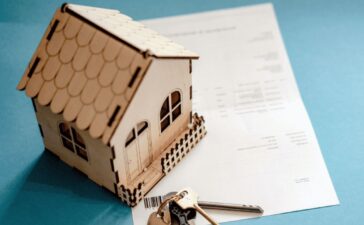When searching for a home, there are a lot of factors to consider. One of these factors is the neighbourhood in which the home is located. It could be a new master planned community with all possible amenities nearby or an old neighbourhood full of suburban perks and rich in history. What’s the ideal neighbourhood for you?
The following will explore a few key components of finding a home in a neighbourhood that suits you.
Be Honest With Yourself
It’s really important when you’re looking for a home that you’re honest with yourself about your habits, interests, and needs. Sort of like buying a gym membership doesn’t actually guarantee you’ll go to the gym on a regular basis; buying a house in a given neighbourhood isn’t going to magically turn you into your imagination’s version of a person who lives in that neighbourhood.
Make a list of your needs first. These are the things you absolutely have to have. This might be a reasonably-lengthed commute to work (remember to factor in extra commute costs when considering the financial side of a given property). It might be that you have to be close to someone you have joint custody of a child with. It might be that you need some sort of nature easily accessible. How many rooms and bathrooms do you need? Does someone in your household work from home and need a separate office?
Once you have a list of your needs (these are your non-negotiables), you can then craft a list of wants. These are things that are ideal and would make your life easier or more comfortable. You want these on a separate list so that you don’t ever accidentally sacrifice a need for a want while shopping.
Relative Wealth Is A Big Deal
One of the factors that most negatively affect a person’s happiness and their sense of how well they’re doing in life is relative wealth. Moving into a neighbourhood where everyone has more money than you can create some seriously hard-to-deal-with feelings and increase your risk for depression. If you have children who will be attending school in the area, they’ll also be affected. Be sure to research the average family income in an area, and don’t surround yourself with people you’re going to be completely incapable of keeping up with.
Within this notion is the idea that the home you’re looking for is one that you can comfortably afford. No matter how gorgeous the property is, you’re not going to love it quite so much five years from now, when you haven’t been able to spend a cent on anything fun or enjoyable without feeling horrendously guilty. You may want to get a pre-qualification done as well as get honest about what you’d be happy paying per month (often people qualify for a mortgage that is a little more than what’s comfortable for them); with www.omahamortgageguy.com/ you can learn more about the difference between pre-qualification and pre-approval if you need some clarification. If you’re buying a home with someone, be sure to talk clearly about what is comfortable spending-wise.
Health Concerns
Being healthy makes many parts of life easier, reduces stress, and helps you enjoy life. When researching neighbourhoods, be sure to look up what the local water quality is like as well as the local air quality. Things like heavily chlorinated water can increase your risk for certain cancers; bad air increases your risk of lung cancer and other respiratory problems. A neighbourhood that makes you sick isn’t one that suits you.
Stage Of Life Demographics
Some neighbourhoods are full of happily retired folks; others have a ton of young families (and roving bands of children on bikes after school). Pay attention to the stage of life demographics of the areas you’re looking in. It’s also important to keep in mind that this changes over time. A neighbourhood of young professionals can slowly turn into a neighbourhood filled with trick-or-treating toddlers.
Neighbourhood Facebook Pages
Believe it or not, many neighbourhoods have Facebook pages. Take the time to look around. This is where people post about community events and community problems and can often be a source of valuable information about a neighbourhood. Are kids stealing everyone’s garbage bins on the regular? Is there one woman in town who never puts her dog on a leash, and the poor creature regularly ends up in other people’s yards? You can get a good idea of community culture by seeing what they post on their community social media pages.
The above information should have given you an idea of a few key components involved in choosing the right neighbourhood for you. Every person and every family is going to have a different list of criteria in a different order. That’s okay. This is about finding your home, someone else’s.




